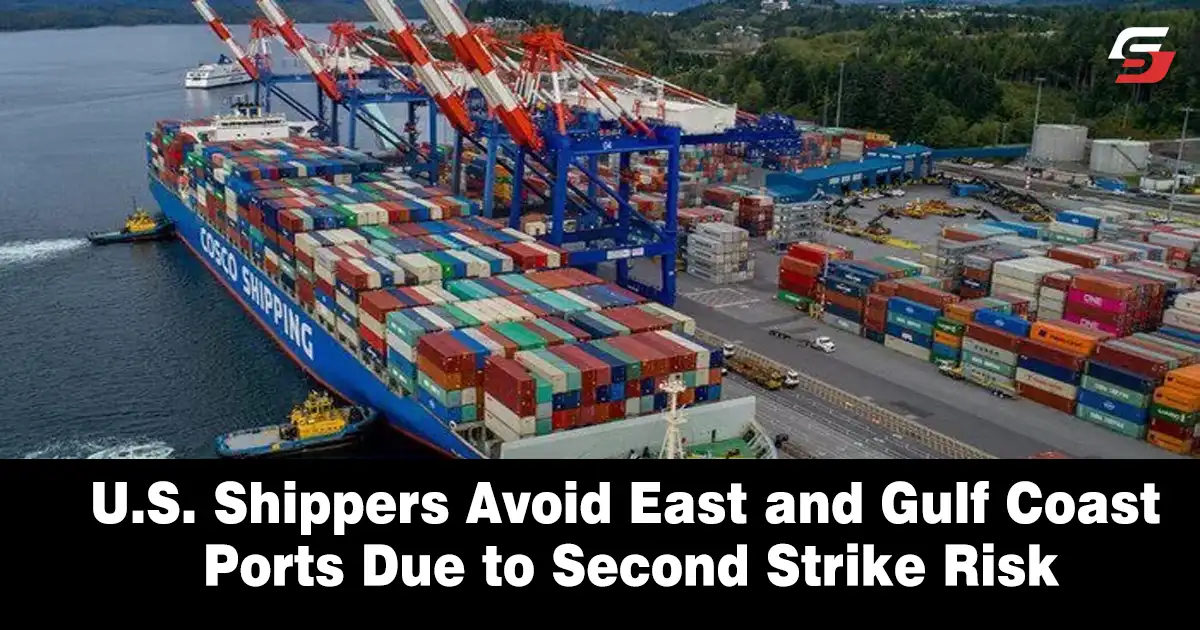Fears of another strike push U.S. shippers to reroute cargo to West Coast ports, as East Coast automation conflict remain unresolved.
Due to concerns that 45,000 dockworkers might strike again if a new contract isn’t reached by January 15, U.S. shippers are eschewing East and Gulf Coast ports. The unresolved issue of automation still looms large and tentative wage deal between the International Longshoremen’s Association (ILA) and the United States Maritime Alliance (USMX) concluded a three-day October strike. Companies, like Newell Brands, reroute critical shipments to West Coast ports to sidestep potential disruptions and shipping volumes in Los Angeles and Long Beach are hitting record highs.
With unions viewing it as a job threat while companies see it as a profit booster, automation remains the primary sticking point in negotiations. Although U.S. ports risk falling behind international competitors adopting technology, ILA leader Harold Daggett is pushing to block automation projects, assering they could cost jobs.
Many shippers are suspicious about reaching a deal without renewed disruption at major ports such as Houston, New York/New Jersey and Savannah in spite of plans to resume talks. Freight forwarders like Alba Wheels Up International estimate a 60-70% probability of a second strike. Alba’s founder, Salvatore Stile said, “Automation, not the money, is the main reason,” predicting tough negotiations ahead.
A strategy shared by other companies, including Costco and Levi Strauss which initially shifted shipments ahead of the September 30 contract deadline Newell is diverting hundreds of containers to the West Coast. With no immediate sign of allocations returning to the East Coast, Los Angeles Port Director Gene Seroka notes that volumes remain high.
Down from 54 at the strike’s end, these ports remain teemed while October saw 25 ships still wait for unloading in Savannah and Houston. Mirko Woitzik, intelligence director at Everstream Analytics says, “It’ll take another 10 days to clear,”.
National Retail Federation CEO Matthew Shay stresses that prolonged disruptions would harm communities nationwide, urging both parties to avoid extending strikes into the new year. Still retailers rushed goods early to protect holiday sales.


